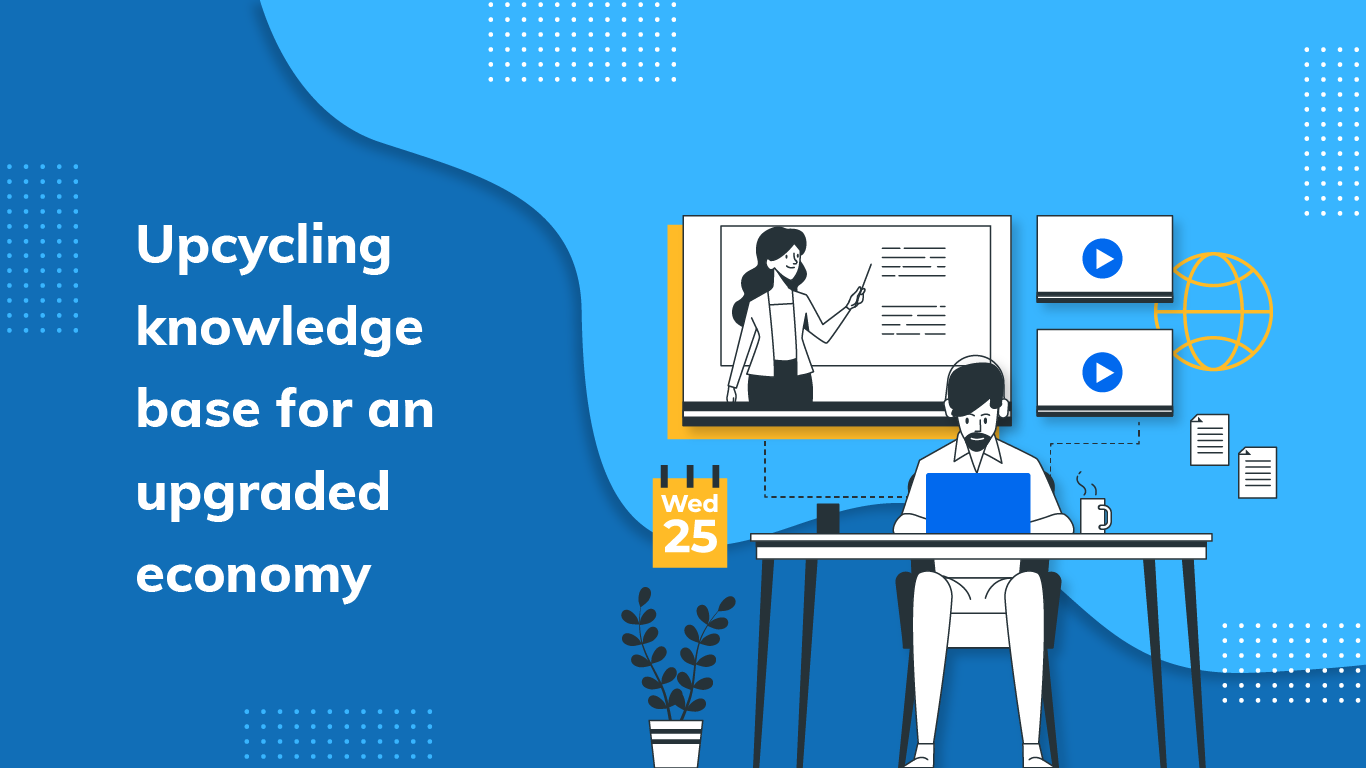Education and literacy of the minds in a nation drive the economy to prosperity and development. When we talk of quality of life, we partially refer to the enhancement in the employment rate that benefits each individual in return. Our forefathers wouldn’t have agreed to us if we told them money in hand can be changed to digital coins. Well, quite shocking for them.
The knowledge economy is a type of economy that depends on human capital and skills to drive a nation to development. Unlike the earlier days of physical labour, the modern economy depends on the ever-shifting IT industry. The set of skills for the modern world relies on the efficiency of digital knowledge and the capability to manage online spaces in businesses.
Digitisation is the new revolution in every form of business and education, where clicks and information have started dominating. What is a knowledge-based economy?
Conducting any type of research, for example, do you ever look up information on an event in old newspapers or books anymore? Definitely not. We can easily access all sorts of information over the internet as well as save time. The improvement in the quality of knowledge is inversely proportional to the decreasing difficulty of accessing information.
This gives us an equation for the Knowledge economy which is
Intellectual capital + technological advancements = Knowledge economy
We must understand that the fulfilment of the basic needs of a population is the initial point toward a developed economy. Below are some of the basic necessities for knowledge development listed:
- Better infrastructure management and access
- Budgetary and monetary balance
- Primary health care and primary education
- Higher education and on-the-job training
- Healthy market competition and interaction with the world economy
The improvement in education is a key factor in advancing the economy to innovation. Unless young minds are given the space to experiment, they cannot exhibit their capacity to reshift their potential limits.
Why is education important for employment?
A survey between 2010 and 2021, shows the educational attainment rate of individuals between the ages of 25-29 increased efficiently. The higher education rate increased from 41 to 49%. The employment rate in March 2021 was recorded on average as 76%, whereas the 2010 rate was 73%.
The rate of increase in employment points toward a need for quality education to balance the ever-growing technology of the nation and stand up to the new requirements of a digitised world. We cannot deny the fact that Artificial intelligence (AI) or virtual realities are the dominant paradigms of the coming future. Data analysis and computer programs are going to be the centre of the future economy.
The increasing need for skilled labour is, therefore, the prerequisite for developing an innovative economy. Our team at DigiVal envisions prioritising learning with experiencing, where students are given a space to self-evaluate and examine their growth. Customisable learning modules and personal assistance through the software create an interactive space for students to learn and relearn every subject.
Learning can be a unique process of going through the same process cycle over and over to analyse every piece of information. Today, practical-based learning has gained more importance which leads to making use of learned concepts to create new knowledge. Assisting young minds in taking each step in the learning process is in a way moving ahead to an advanced society.
Outcome based education platform outcome based education system what is outcome based education system outcome based education software E- learning software Educational Learning Software OBE Software Outcome based Education Toolsdigitzationknowledge baseeconomyupgradation




